+ Recognize and recover from violence-induced trauma
+ Peacefully transform intercommunal conflicts
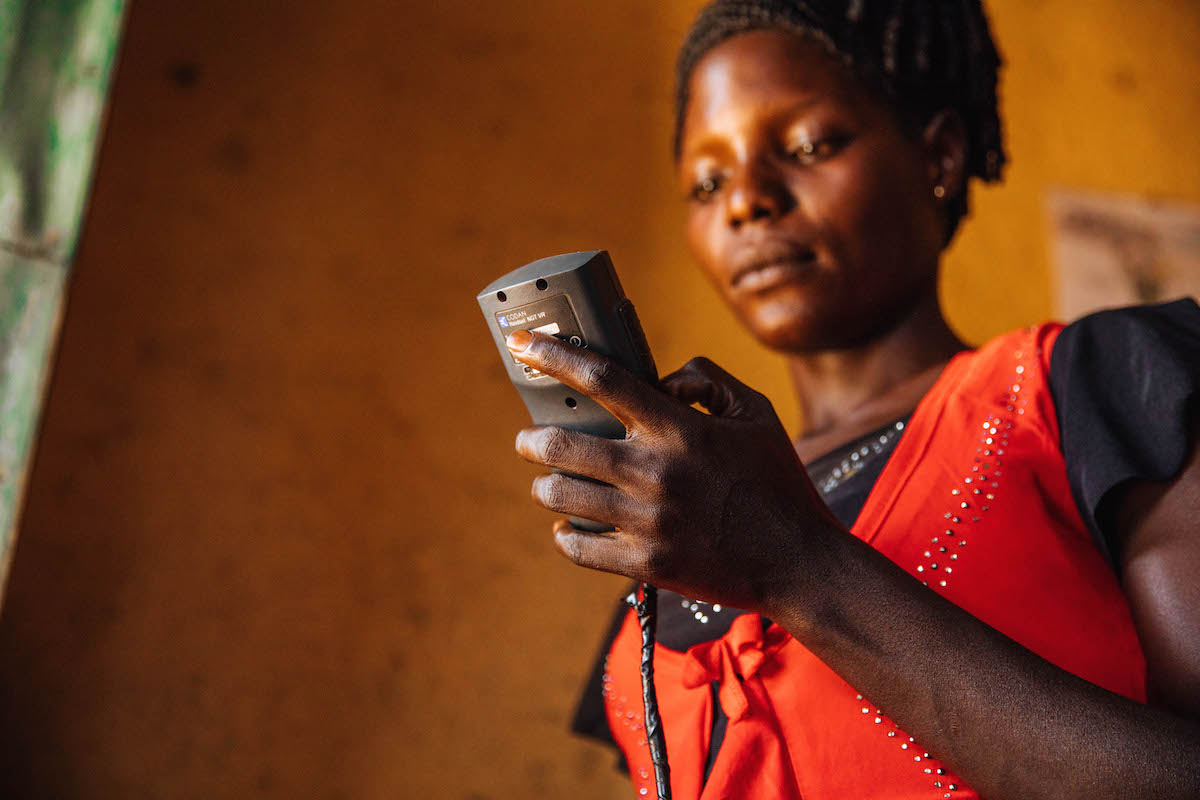
Helping communities prevent violence and reduce their vulnerability
CRCA is expanding the coverage of locally-run communication networks in CAR and DRC that have been built with the support of USAID through its Secured Empowered and Connected Communities (SECC) project and by Invisible Children in partnership with local civil society. Comprised primarily of High-Frequency (HF) radios with two-way communication capabilities, this network serves as a critical connection tool and early warning system, giving highly remote communities the ability to report threats of violence to one another and to humanitarian organizations who can respond in times of need. CRCA will enable this network to reach and connect more than 110 communities across the Mbomou Uele region.
CRCA is also training local Peace Committees volunteers on a variety of violence prevention and resilience strategies, including the creation of localized Community Action Plans that equip them to more effectively reduce their vulnerability to threats.
In tandem, CRCA is enhancing the functionality of Invisible Children’s conflict mapping platform, the Crisis Tracker, to provide local, regional, and international stakeholders with regular, in-depth analysis of trends in violent conflict facing the region.
CRCA project highlights:
+ Expansion of locally-run early warning systems to reach and connect at least 110 communities
+ Training more than 110 local Peace Committees on Community Action Plan development and other risk-mitigation strategies
+ Enhancing the Crisis Tracker tool to improve collaboration among local and international groups supporting protection needs, including the reunification of armed group returnees
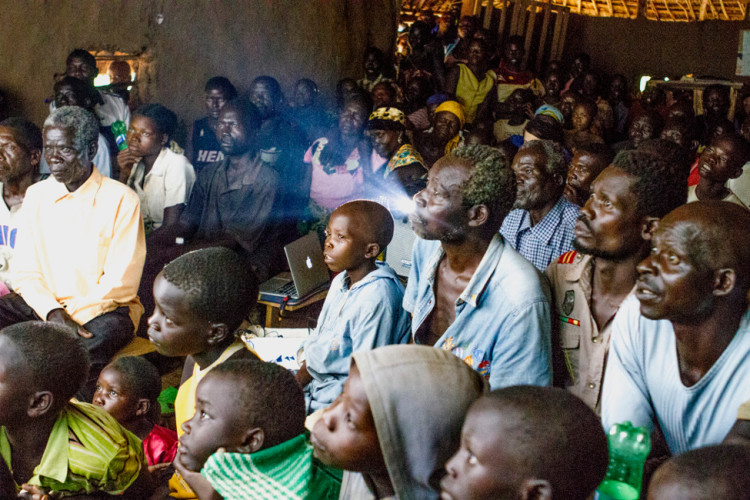
A community participating in the Mobile Cinema Workshop
Unifying Communities and Conservation Actors
The Mbomou Uele border region is home to multiple wildlife protected areas facing constant threats from armed groups, including the Bili Uele Protected Area and Garamba National Park in DRC and Chinko in CAR, the latter of which are both managed by conservation non-profit African Parks. Core to the CRCA Project are strategies to strengthen collaboration between communities and conservation actors in the region in order to prevent continued armed violence against people and wildlife. To accomplish this, CRCA uses relatively familiar tools like locally-run FM radios as well as innovative platforms like Mobile Cinema-based narrative films to engage local audiences and build community awareness of regional conservation efforts and how they relate to human security.
CRCA project highlights:
+ Equipping at least 110 local Peace Committees with trainings and information-sharing tools to better collaborate with conservation organizations in identifying and responding to threats to human and wildlife security.
+ Partnering with nine locally-run FM radios to create and broadcast programming on conservation and how it impacts community safety and wellbeing.
+ Production and local screenings of a Mobile Cinema film that tells the story of a park ranger and a local hunter, to enhance local community buy-in and cooperation with conservation authorities.
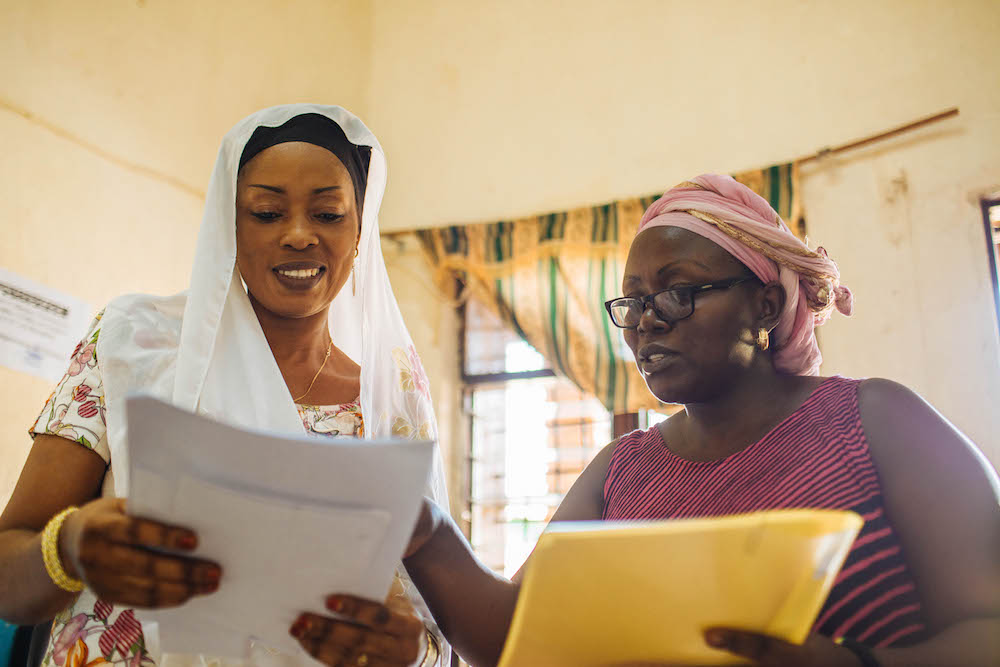
Supporting communities in transforming conflict
CRCA is equipping local volunteers in 30 target communities with the tools to identify and transform conflict before it escalates into violence. Highly-trained national mediators will equip local stakeholders in target communities with mediation tools and strategies to transform conflict and build social cohesion. When necessary, the trained mediators will also rapidly deploy to communities where conflict is escalating to support intensive mediation processes.
CRCA project highlights:
+ Training more than 120 local volunteers, with a particular focus on women, in methods of transforming conflict and organizing peacebuilding events in their communities
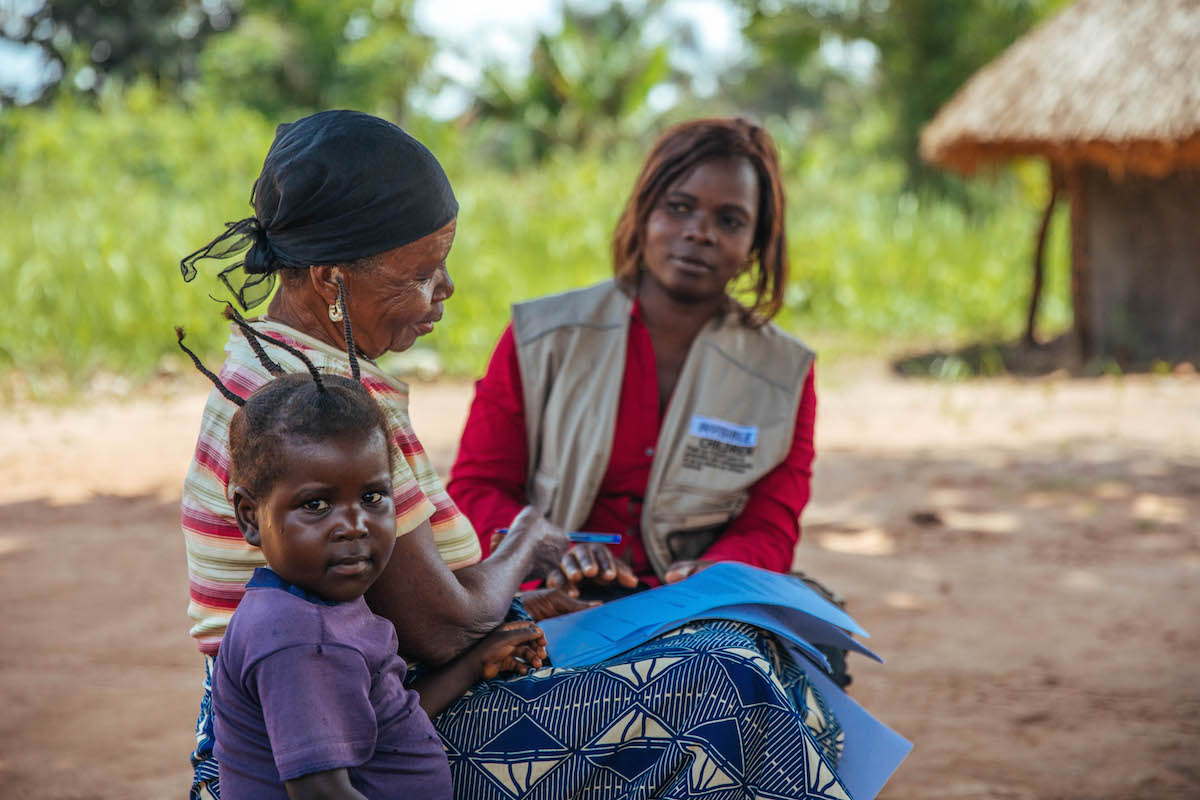
Helping communities and individuals heal from trauma
Guided by respected mental health and psychosocial support experts, CRCA is training local volunteers and developing community-based tools that support trauma healing at varying levels of severity. As many individuals in the region suffer from acute trauma, CRCA is providing both community-wide programming to address basic trauma healing needs as well as more intensive support for high-needs individuals.
CRCA project highlights:
+ Training and activating at least 20 Community Counselor Teams in 20 target communities to facilitate trauma healing at the community level
+ Establishing a robust and reliable system to track the status of armed group returnees, including women and children, and to support the family tracing, repatriation, and reunification process for these returnees
CRCA’s Area of Operation | The Mbomou Uele Border Region
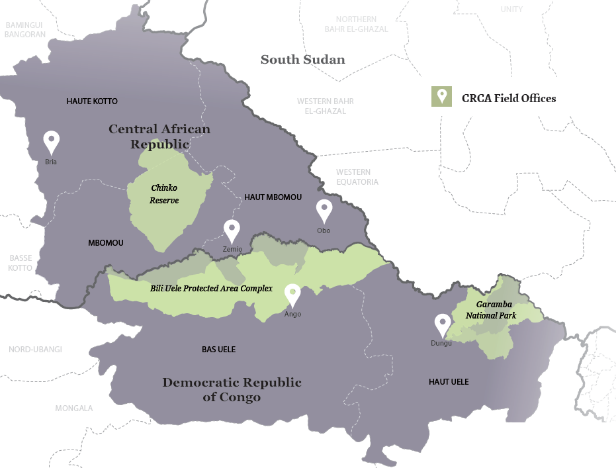
CRCA is made possible by the support of the American people through USAID and is a collaborative effort, led by Invisible Children. Partners of the project include La Commission Diocésaine Justice et Paix (CDJP), Solidarité et Assistance Intégrale aux Personnes Démunies (SAIPED), Caritas Bondo, Vision et Développement, Bria Londo, African Parks, African Wildlife Foundation (AWF), and Union d’Assistance aux Orphelins et Enfants Vulnérables (UAOEV).
As one part of a joint initiative between USAID’s Peace and Security Office and the Central Africa Regional Programme for the Environment (CARPE), CRCA works in collaboration with two Community Based Countering Wildlife Trade (CBCWT) projects led by conservation non-profit African Parks.
CRCA Resources & Updates
CRCA Informational sheet (English)
CRCA Informational Sheet (French)
Crisis Tracker
Protecting Pangolins || A Conservation Success Story
Community Action Plans || Using Local Genius to Avoid Crisis
Meet the Early Warning Team || Ernest and Nastasia
For more information about Invisible Children or the USAID-funded CRCA Activity, please contact:
Azy Groth
Strategic Communications and Digital Product Manager
[email protected]

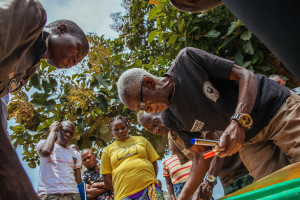






Think people should hear about this?